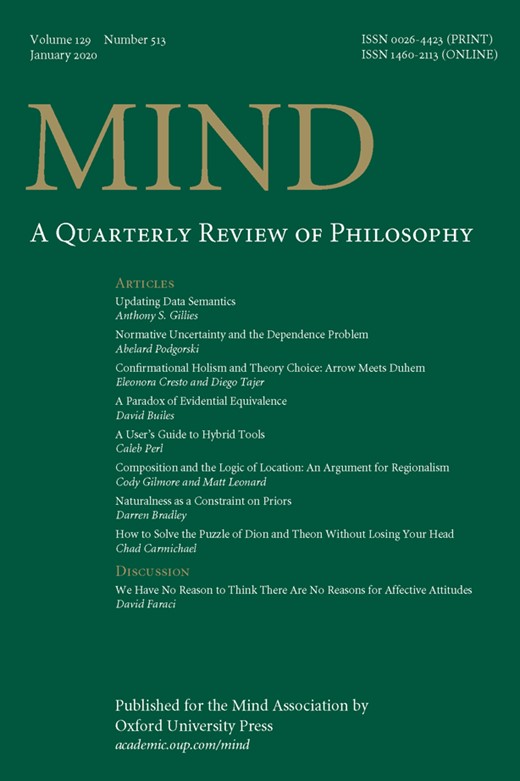-
Views
-
Cite
Cite
Julianne N Chung, The Vulnerability of Integrity in Early Confucian Thought, by Michael D. K. Ing, Mind, Volume 129, Issue 513, January 2020, Pages 299–307, https://doi.org/10.1093/mind/fzz010
Close - Share Icon Share
Extract
1. Integrity and vulnerability in early Confucian thought
While this book—as its title suggests—focuses on the vulnerability of integrity in early Confucian thought, it is fundamentally about the necessity and even value of vulnerability in human experience. As its author, Michael D. K. Ing, himself points out, it can hence be read as participating in larger conversations about the ways in which meaningful things are vulnerable to powers beyond our control and, more specifically, exploring the ways in which relationships with meaningful others might compel unfortunate (and even tragic) actions (p. 3). It will also be of interest to anyone curious about the nature and value of vulnerability more broadly, as well as a variety of related topics—not least of all metaphilosophical issues surrounding how to do cross-cultural philosophy well. For the uninitiated, cross-cultural philosophy—as Anand Vaidya puts the point—is
not like comparative philosophy, which sometimes aims merely to compare thinkers from different traditions and time periods. Nor is it like fusion philosophy, which sometimes only aims to fuse together ideas from different thinkers in a manner that takes its cue from fusion chefs and musicians. … Cross-cultural and multidisciplinary philosophy, unlike its close cousins, reaches out to other cultures and disciplines in order to generate an account of a phenomenon or problem by synthesizing across cultures and disciplines (Vaidya 2019, p. 1).



